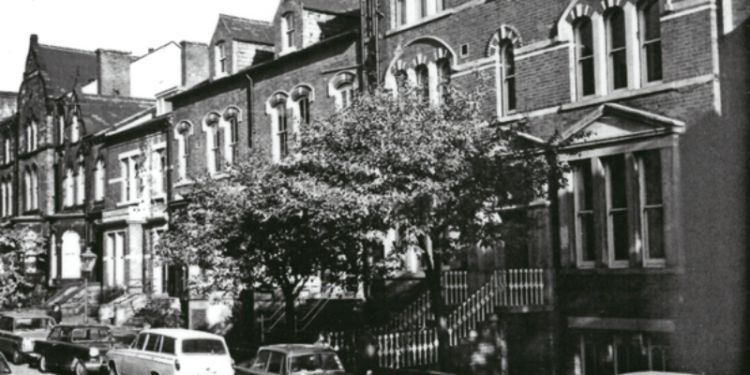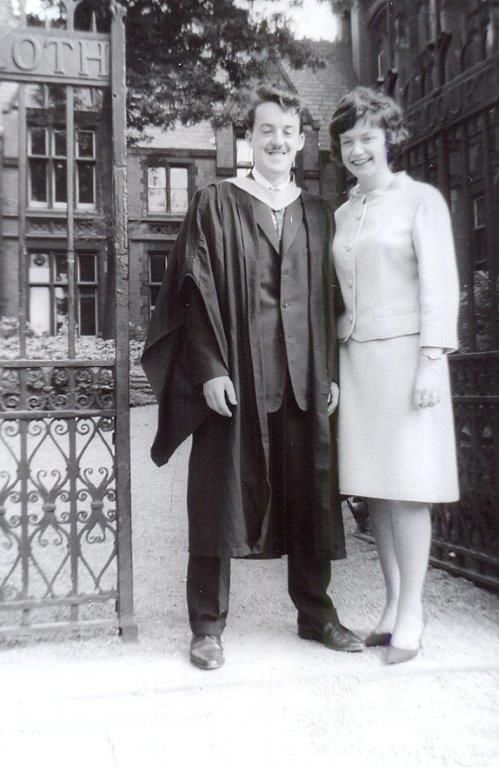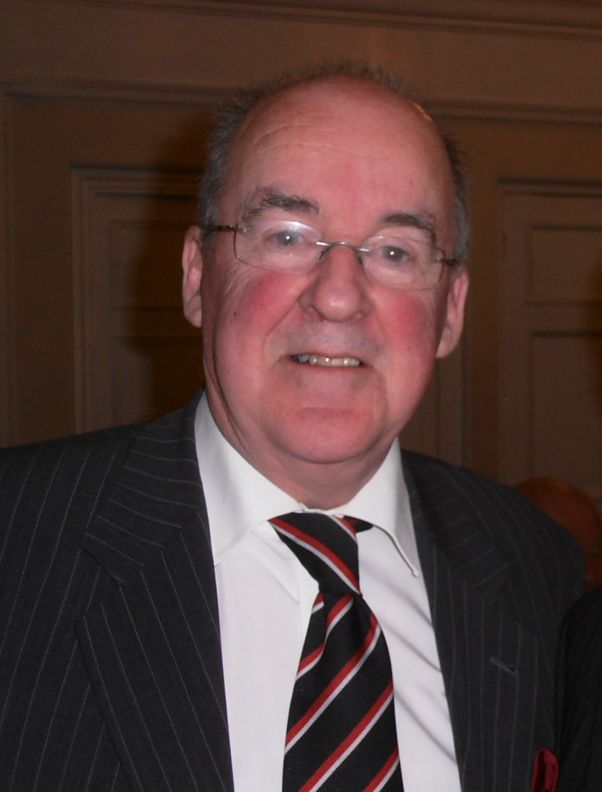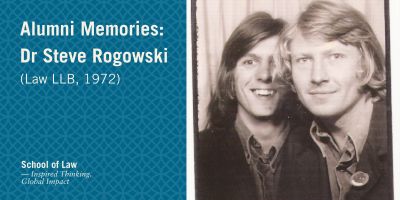Sixty years of legal learning: Peter Newham reflects on the School of Law in the 1960s

A nostalgic look back at legal education in 1960s Leeds — rigorous, eccentric, and unforgettable, from smoky study rooms to vivid lectures and the unexpected discovery of lifelong love.
A distant era revisited
“The past is another country,” writes Peter Newham, a retired Solicitor, as he reflects on his time at the University of Leeds School of Law in the early 1960s. Prompted by a recent alumni e-newsletter, Newham’s vivid recollections offer a window into a legal education that was as rigorous as it was idiosyncratic – and deeply personal.
It all feels like a far distant era, but one worth revisiting for those who shared it.
Theory over practice
Back then, legal study was a largely theoretical pursuit. “There was total reliance on textbooks, dictation at lectures, and handwritten essays,” Peter recalls. The curriculum leaned heavily on English Legal History, Roman Law, and Constitutional and Criminal Law in the first year – subjects that, while intellectually rich, offered little in the way of practical preparation, “although a more contemporary start on Tort, Property and Contract was of more effective subsequent use!”.
“Without doubt the academic study of Property Law, and even the more practical Conveyancing on a subsequent cram course at the College of Law for what used to be Part II of the Solicitors Finals left one very unprepared for real examination or drafting of Abstracts of Title, complex Leases, let alone encounters with Settled Land and Reversioners,” he notes with a wry tone.
Forensics, fear, and female pioneers
Among the more memorable experiences was a weekly lecture on Legal Forensics by the renowned Professor Polson, a barrister and pathologist whose later work included the infamous Moors Murders case, “...with graphic slides and other visual material calculated to induce maximum distress among as many students, particularly female, as possible!” Newham writes. At the time, only six women were among the 48 students in the cohort, a figure he describes as “advanced progress to Equality – autre temps, autre mœurs!”
Love and legacy
It was during these formative years that Newham met his future wife Deirdre in Leeds, and their shared experience in the city laid the foundation for a wonderful lifelong partnership.
The legacy didn’t end there. Both his daughter Catherine and granddaughter Olivia have since graduated from the University of Leeds, continuing a proud family tradition.
It’s a source of great pride to see the next generations walk the same paths — though thankfully in more modern buildings!

A campus of contrasts
The physical environment of the 1960s was a far cry from the Liberty Building. “No modern purpose-built temple to legal study then,” he says of the Victorian building on Lyddon Terrace.
It's dingy downstairs study room, thick with cigarette smoke, drove us to flee to the relative luxury of study in the even then crowded Brotherton Library, warm and comforting, and but a stone’s throw from the welcoming Union Bar.
Memorable mentors
The faculty, too, left a lasting impression. Under the leadership of the authoritative Professor Philip James – author of several “lucrative potboilers” – students were guided by a cast of characters including the genial Mr Latham Brown, the aristocratic Mr Parker, and Dr M.R. Russell Davies, whose expertise in burial law was as niche as it was authoritative.
A career forged in Leeds
Despite the challenges, Newham looks back with fondness. “With hindsight it was a most memorable and enjoyable prelude to a 40-year legal career,” he writes. That career culminated in his appointment as Borough Solicitor for Northampton Borough Council, a post he stayed in until his retirement in 2004.
“My debt to the University is perhaps an enduring one,” he concludes, signing off with a Latin phrase – eheu fugaces labuntur anni – a nod to the classical education of the time: “Alas, the fleeting years slip by.”

Stay connected and share your story
Have your own memories of the School of Law at Leeds? We’d love to hear from you – share your story and help keep the legacy alive.
Don’t forget to keep your contact details here up to date so we are able to share the latest news with you, provide career support, invite you to relevant events and inform you about plenty of other ways you can get involved with the University.




